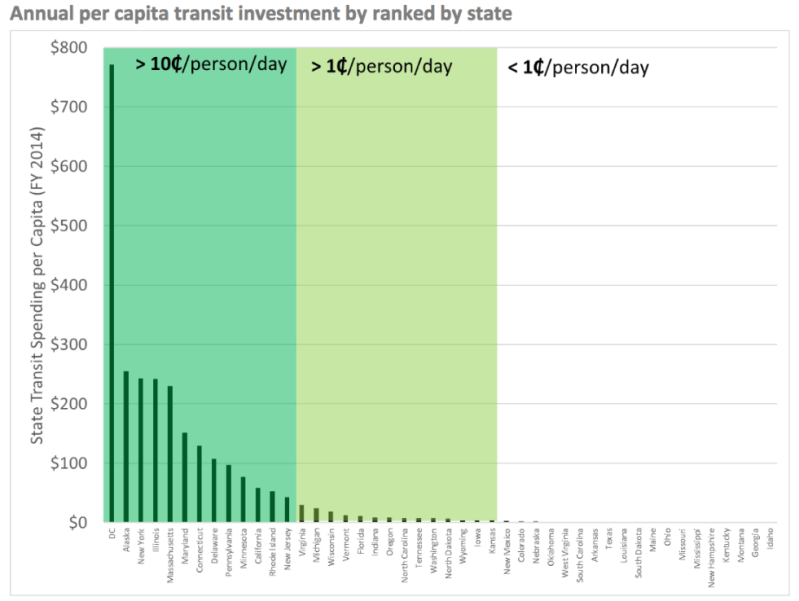Transit Is Laughably Underfunded in Colorado

Colorado spends less than 1 cent per person per day on transit. If that sounds like a paltry amount, you’re right. The national average is 20 times higher, according to a policy brief by the Southwestern Energy Efficiency Project released this week [PDF].
The Centennial State is behind far less urbanized places like North Dakota, Wyoming, and Kansas.
SWEEP released the report as state legislators debate a ballot measure to raise transportation funds. Republicans and Democrats at the capitol are trying to agree on the revenue-raising mechanism, the amount, and how the money will be spent. A big question is whether lawmakers will lavish resources on expanding highways that the state already cannot afford to maintain, or whether transit, walking, and biking will get a fair shake.
“We thought it was important in this discussion for decision makers to understand just how much the state of Colorado has underfunded multimodal transportation over the years,” said Will Toor, SWEEP’s transportation program director.
The state should be spending more than $500 million more per year to meet urban and rural transit needs, according to a 2016 report by SWEEP and Colorado PIRG. If things don’t change, by 2040, metro Denver could face a transit funding shortfall of $900 million per year, according to the brief, which analyzed CDOT’s transit plan.
A more modest goal would be to match the transit funding rate in leading states, which would amount to $277 million more per year.
“We don’t need to get to the top, but it would be nice if we could just be average,” Toor said.
The only consistent stream for state transit funding comes from vehicle registration fees and totals $15 million a year. The amount is fixed and doesn’t increase with car ownership. Localities can use their portion of gas tax revenues for transit, but the tax has not increased in a quarter century and inflation has weakened its buying power.
Last year a would-be ballot measure never got off the ground because the road lobby wrote it to prioritize highways and snub transit. That just won’t fly this time around.
“If we want to meet the actual needs of the residents of Colorado, those needs are inherently multimodal,” said Toor. “If this thing is going to pass on the ballot, it needs to address the things that people care about, and we have multiple polls over the years that show things like safe ways for kids to walk and bike to school, public transit that helps get the elderly and disabled to medical appointments, and transit that helps get people to work and to school — those are all things that people care about, and if they’re not part of a ballot measure it’s not gonna pass.”


